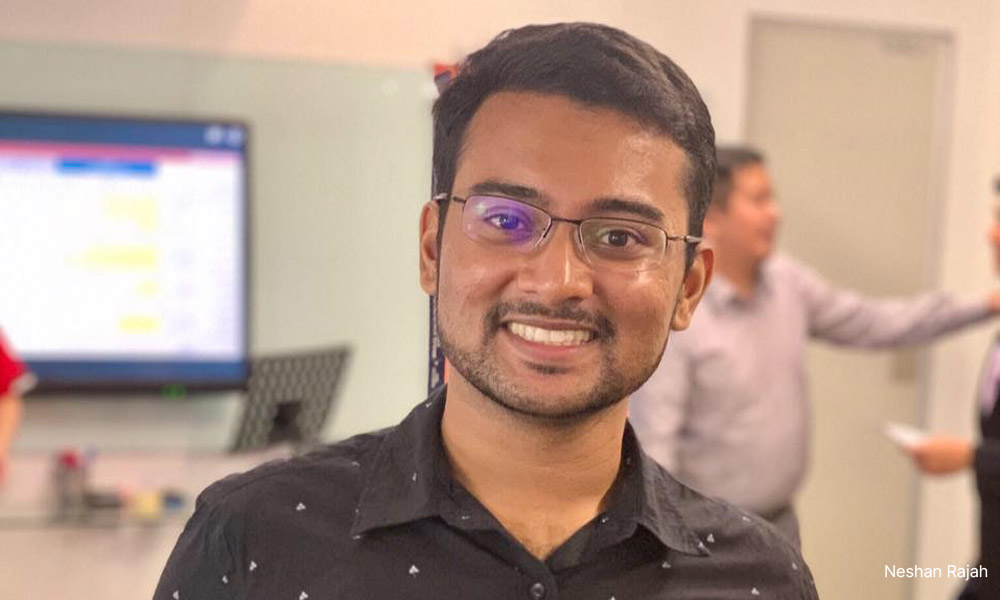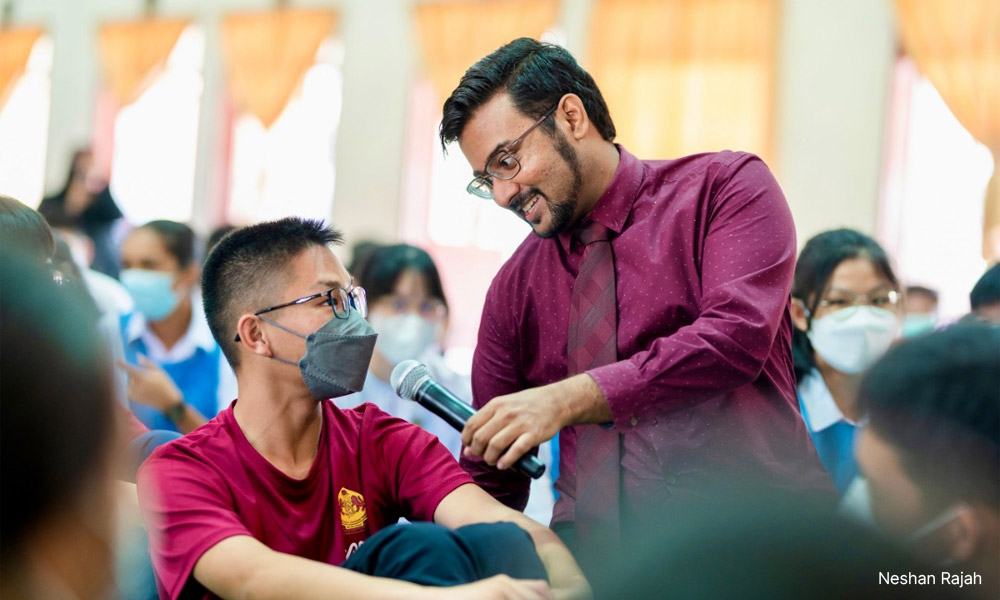Youth activist Neshan Anantha Rajah is on a mission to advocate for better mental health programmes in Malaysia.
A recent graduate from Monash University Malaysia, Neshan’s astounding extracurricular contributions show his commitment to bettering the broader community.
Apart from being an award-winning toastmaster, Neshan, 26, set up a peer support mental health programme at the university to develop communicative empathy skills among students.
“I currently do mental health programmes and advocacy work for youth because they aren’t represented in any discussion, be it in schools or even in their own households.
“I don’t get paid for my work, I’m only paid in gratitude and happiness. Children need support as they are underrepresented domestically,” he said in an interview with Malaysiakini.
However, Neshan did not have an easy life growing up.
He was bullied at the young age of 13, which eventually led to him falling into severe depression. It started with him being mocked in class and later, cyber-bullying on social media.

Despite this, Neshan chose to take control of his life and vowed to provide the support that he never got during his troubled years.
“Bullying inspired me to become an advocate as the healing process requires accepting our pain and transforming it into something else.
“It is more of a ‘rite-of-passage’. Rather than letting it control you, you control your own journey and give meaning to your story.
“Becoming an advocate was a choice for me - to grow from my experiences and not be hampered by them. It’s a choice anyone can make to empower themselves and others at the same time,” he told Malaysiakini.
Neshan recalled feeling unmotivated to go to school during his teenage years which caused a rift within his family.
“My father punished me severely for inappropriate behaviour and for not wanting to go to school. My relatives also got involved, pressuring me further.
“I lost out on all my scholarships, music and tuition. This is why I left school,” he writes on his blog.
He suffered from social anxiety following the death of his mother, which eventually led to an emotional and neurological disorder.
For a period of time, Neshan lived in and out of hospital and a nursing home, with difficulties completing simple tasks such as walking and eating.
A safe platform
It has been eight years since Neshan started mental health therapy. He went to university in 2015 and completed a double degree in Business and Commerce as well as Psychological Science and Business.
The high achiever is also a recipient of the university’s Vice Chancellor's Award in Diversity and Inclusion for setting up a mental health programme on campus - the Fireplace mental health programme.

The programme was conceived after Neshan noticed a lack of visionary leadership among varsity clubs with a genuine interest in their members. He envisioned building a community where members were given a safe platform to share and talk about their struggles.
“I was rejected everywhere I went when I was younger, but my desire to help others made me create new things to protect those I cared about,” he said.
An aspiring clinical psychologist, Neshan sees gaps in mental health advocacy in the country.
“I realise there is a lack of clinical psychologists in Malaysia with experiences in these areas, hence I believe my personal experiences can add value to those encountering similar things.
“I believe in careers in synergy with one's strengths, spiritual aspirations as well as experiences. This leads to overall well-being (of a person).”
Neshan is a huge proponent of therapy but notes that it is highly inaccessible due to its cost.
“The government does not subsidise therapy though it has been shown that poor mental health is a precursor to various illnesses such as cancer, diabetes and hypertension.
“In order to save public funds later, it would be wise to invest in public education and treatment of mental health in Malaysia.
“There is never a time that is too late to start therapy. It’s like exercise, you need to maintain good mental health.
“The world cannot keep up with rapid changes in technology affecting human beings. Humans themselves must keep up with the changes by learning mindfulness, flexible thinking and emotional management.” - Mkini




No comments:
Post a Comment
Note: Only a member of this blog may post a comment.